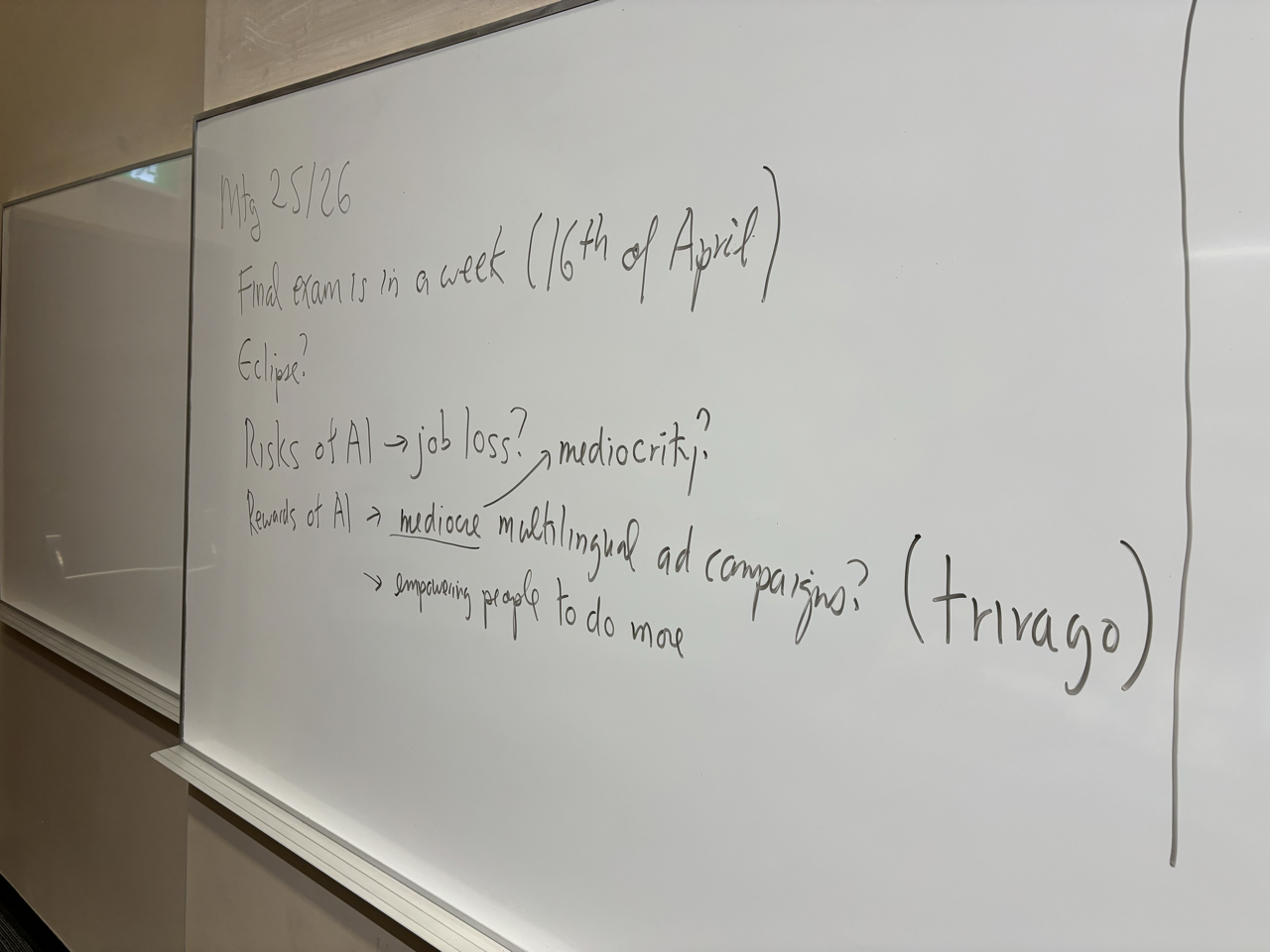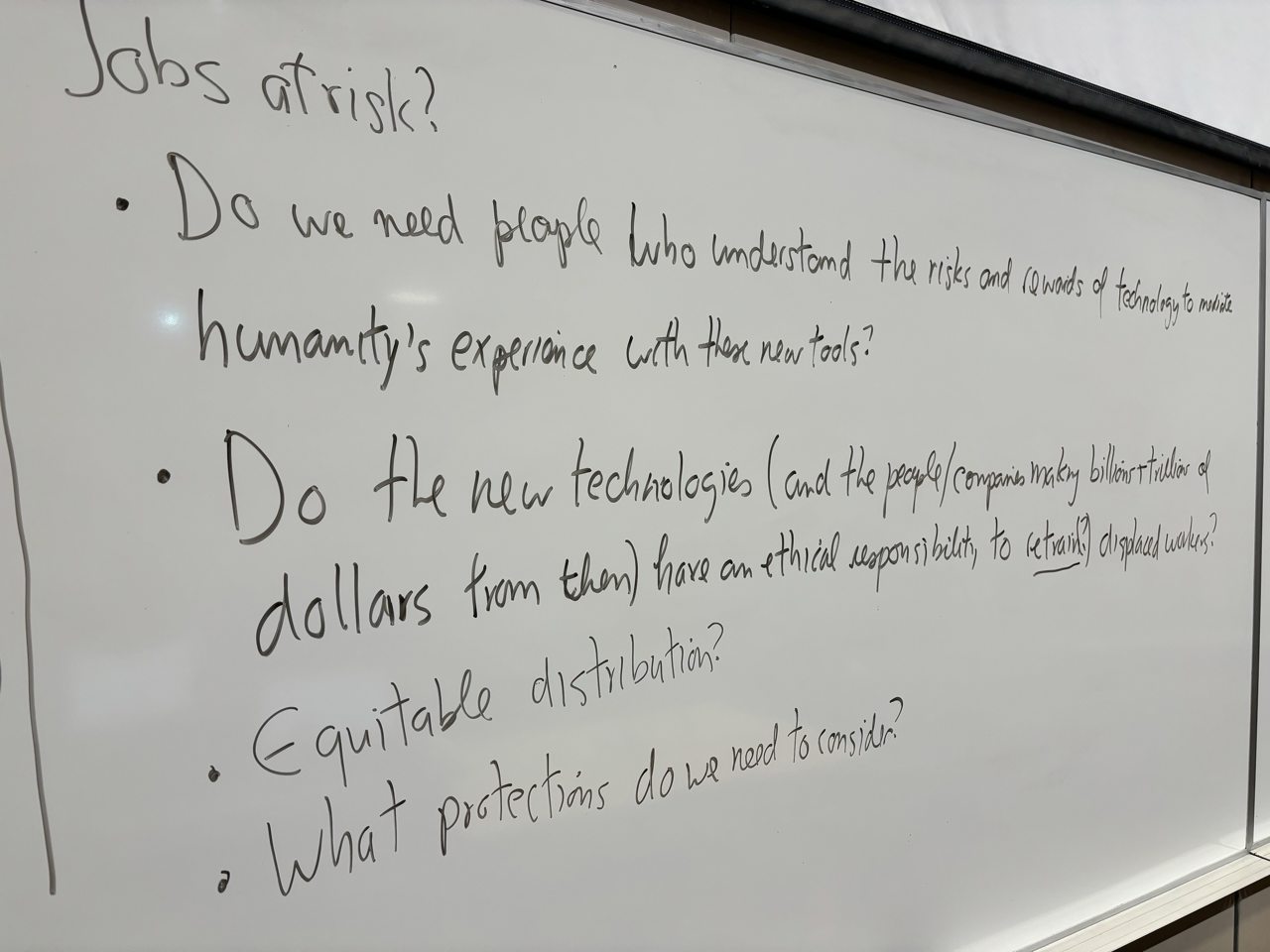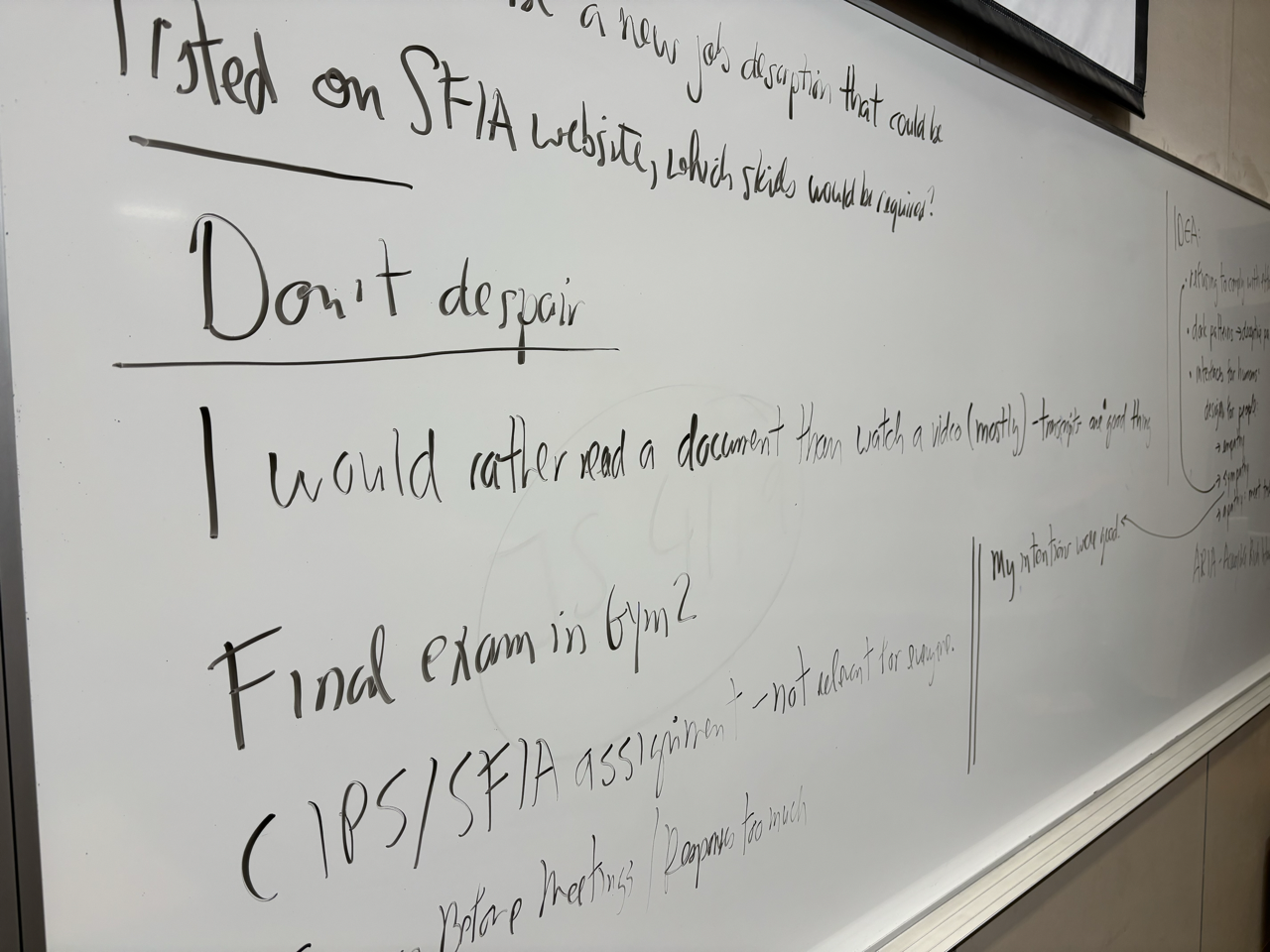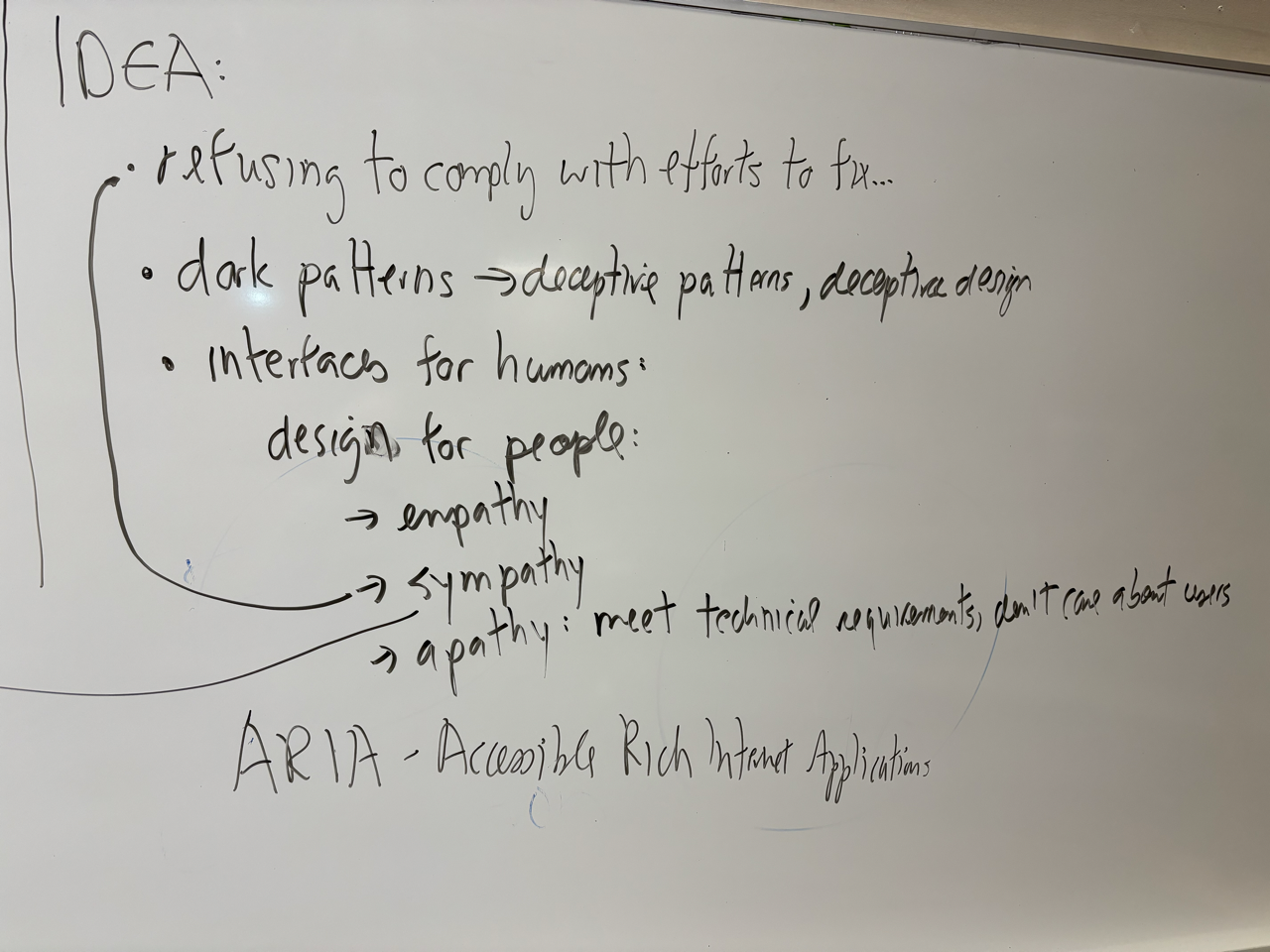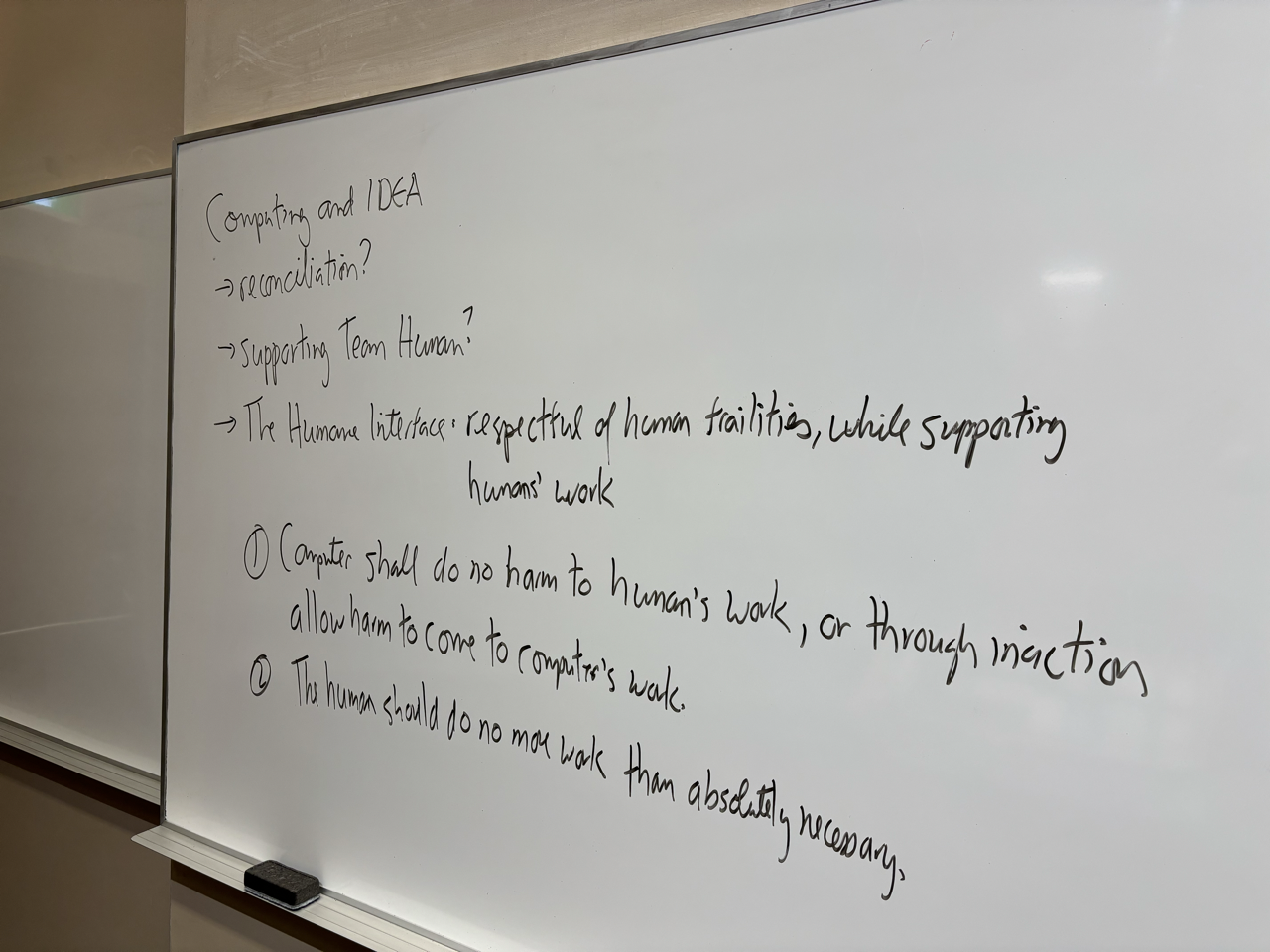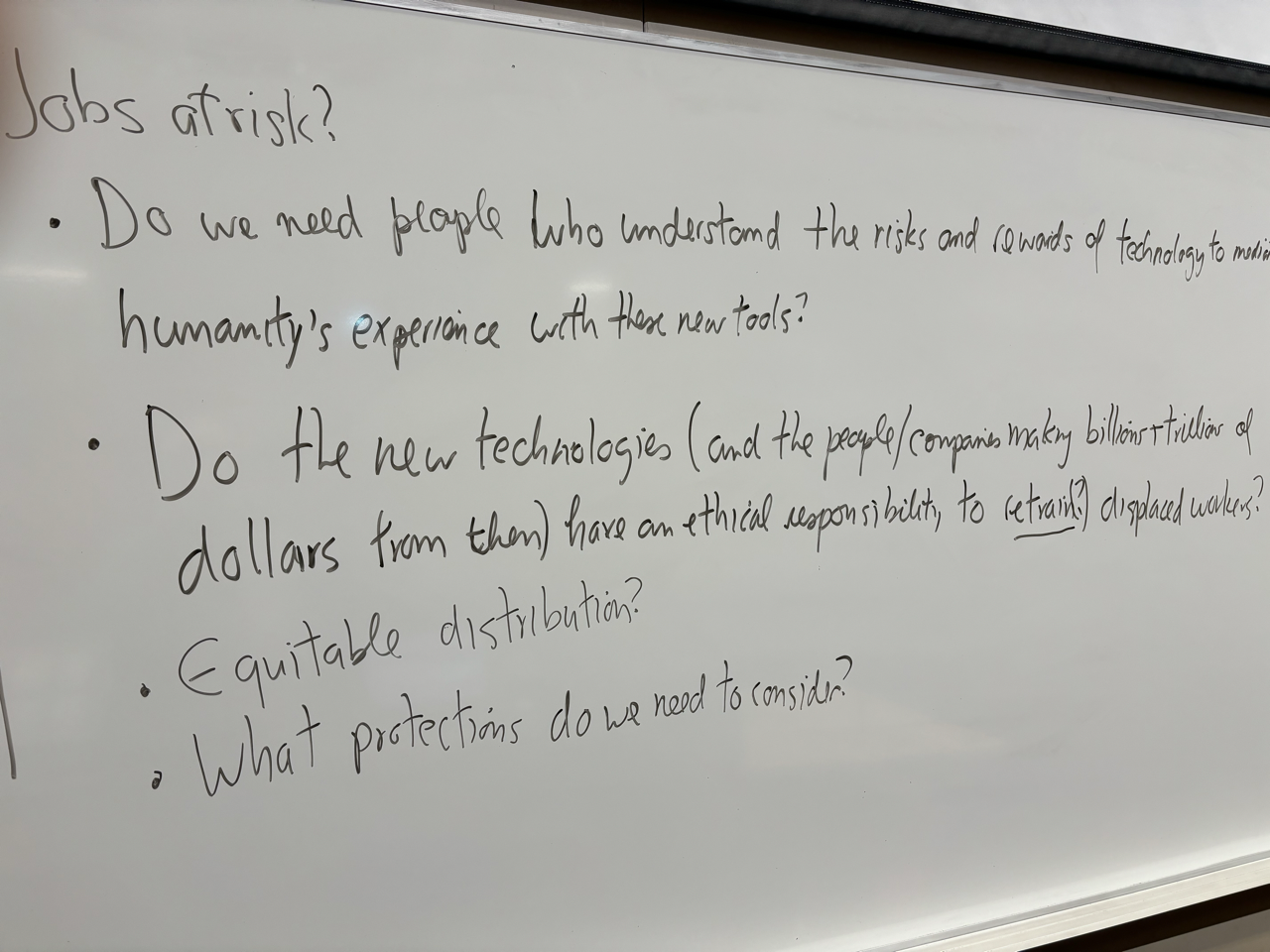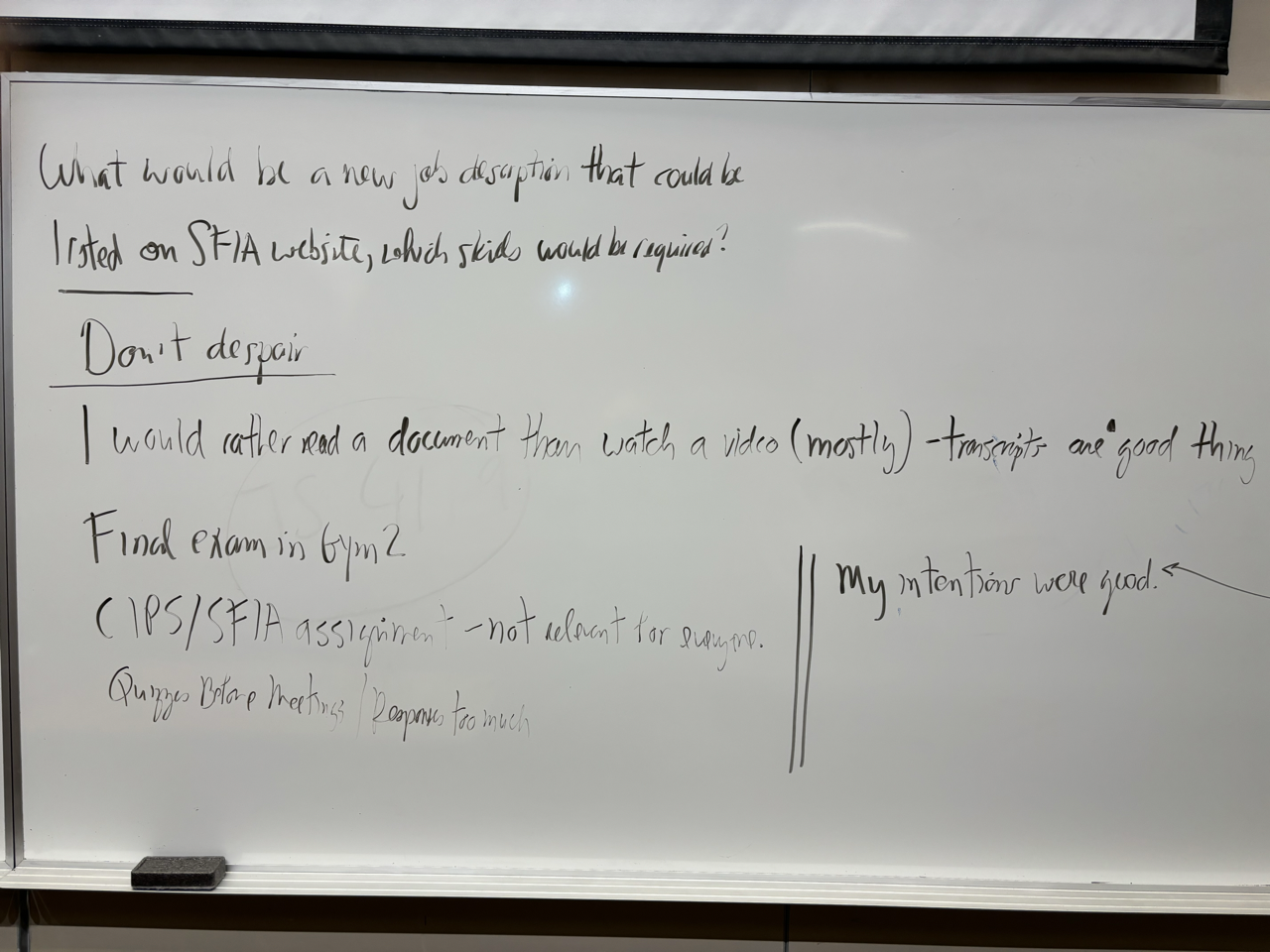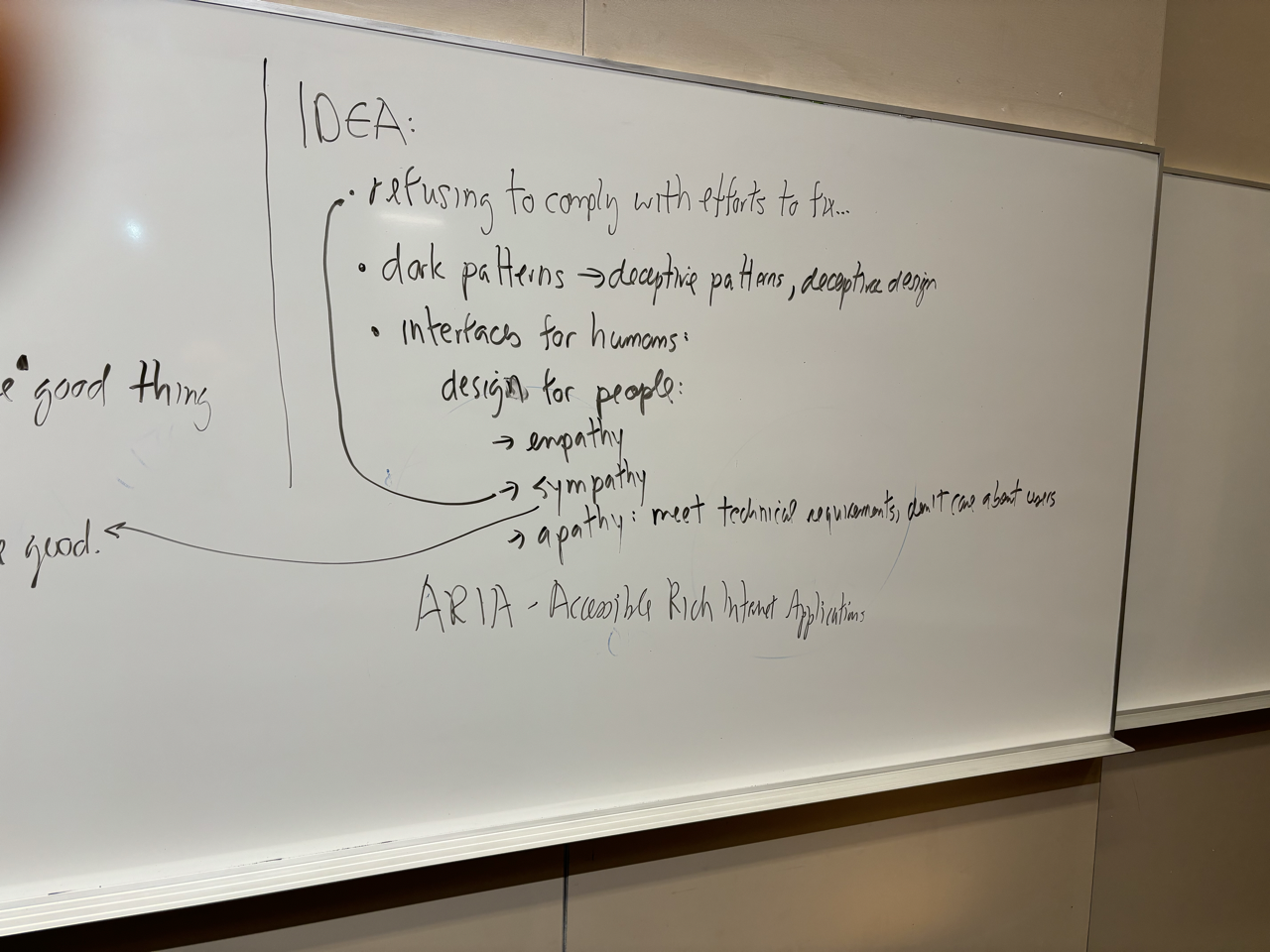Mtg 25/26: Tue-09-Apr-2024
Outline for Today
IDEA, Humane interfaces
Administration
- Happy Tuesday
- Attendance
- Class calendar for today
- Upcoming events
Response to Responses
- “One thing that was hard for me to understand was how so many people joined the tech field at once, and now there are so many people who will be losing their jobs due to AI. However, some government institutions may not want AI handling certain information so they will need to turn to humans to do the jobs. It is confusing.”
- Collective bargaining agreements to value human perspective, labour laws.
- What other protections need to be contemplated?
Results from Last Meeting
- final exam input (still open until end of day April 10)
- formative feedback for me
Today
- Following up from yesterday:
- Crip Technoscience Manifesto
- Abstract: “As disabled people engaged in disability community, activism, and scholarship, our collective experiences and histories have taught us that we are effective agents of world-building and -dismantling toward more socially just relations. The grounds for social justice and world-remaking, however, are frictioned; technologies, architectures, and infrastructures are often designed and implemented without committing to disability as a difference that matters. This manifesto calls attention to the powerful, messy, non-innocent, contradictory, and nevertheless crucial work of what we name as ‘crip technoscience,’ practices of critique, alteration, and reinvention of our material-discursive world. Disabled people are experts and designers of everyday life. But we also harness technoscience for political action, refusing to comply with demands to cure, fix, or eliminate disability. Attentive to the intersectional workings of power and privilege, we agitate against independence and productivity as requirements for existence. Instead, we center technoscientific activism and critical design practices that foster disability justice.”
- Cover image from the Catalyst journal issue that contains the manifesto
- Does computing do enough to promote IDEA (Inclusion, Diversity, Equity, and Accessibility)?
- The Humane Interface (book by Jef Raskin, Aza Raskin’s dad)
- “An interface is humane if it is responsive to human needs and considerate of human frailties. If you want to create a humane interface, you must have an understanding of the relevant information on how both humans and machines operate. In addition, you must cultivate in yourself a sensitivity to the difficulties that people experience. That is not necessarily a simple undertaking. We become accustomed to the ways that products work to the extent that we come to accept their methods as a given, even when their interfaces are unnecessarily complex, confusing, wasteful, and provocative of human error.”
For Next Meeting
- Submit your response to this meeting before noon tomorrow
- Take quiz before the start of our next meeting
ACTION: Take quiz before next meeting
Wiki
Link to the UR Courses wiki page for this meeting
